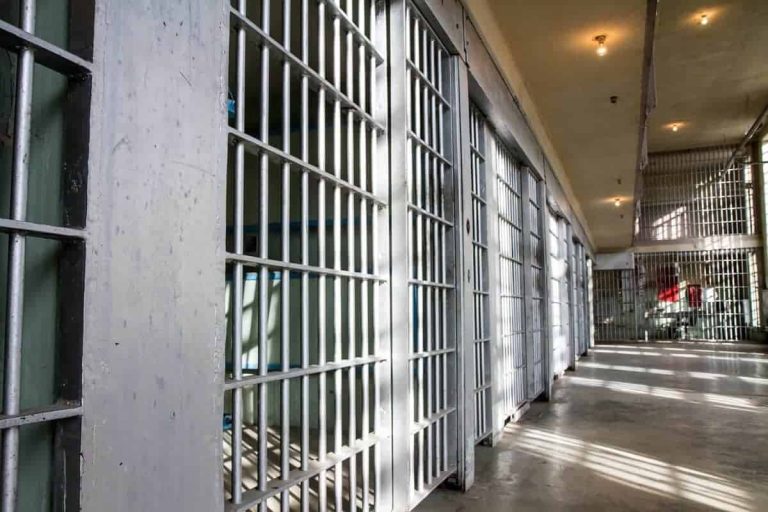
 On October 16, the High court stopped the Uganda Law Society (ULS) from holding its general meeting scheduled for October 18, the meeting where members were to nominate two representatives to the Judicial Service Commission (JSC).
On October 16, the High court stopped the Uganda Law Society (ULS) from holding its general meeting scheduled for October 18, the meeting where members were to nominate two representatives to the Judicial Service Commission (JSC).
The court said it was preserving the status quo. Yet what it preserved was not law but paralysis, not order but uncertainty. Its ruling rests on one great mistake, that the Attorney General and the Solicitor General had been expelled from the Law Society Council pursuant to Radical New Bar (RNB) executive order No. 1 of 2024.
That claim is repeated as fact. But those who have read the order know that no such act ever took place.
WHAT THE ORDER TRULY SAID
The body of Executive Order RNB No. 1 of 2024 contains not one clause removing anyone from office. Instead, it calls upon the ULS to question, in the Constitutional court, the constitutionality of Section 9 of the ULS Act, which makes the Attorney General and Solicitor General ex officio members of council.
That is the society’s constitutional right to seek interpretation from the court of competent jurisdiction. Nowhere does the order claim to expel those officers. It registers a disagreement, it declares an intention to litigate, it protests what it views as an outdated arrangement.
But challenge is not expulsion and petition is not rebellion. I challenge any reader, judge or citizen, to find a single line in that document that removes the government’s officers from council. There is none.
Sadly, it seems the court did not read the order at all, for the body of the text refutes the very premise upon which the injunction rests.
THE LAW THAT GUARDS AGAINST PARALYSIS
Even if one imagined absence or irregularity, Section 30 of the Interpretation Act stands as the safeguard against paralysis.
It declares: “Any body … may act notwithstanding any vacancy in its membership; and its proceedings shall not be invalidated by … the presence or participation of any person not entitled … or by any minor irregularity in the convening or conduct of any meeting.”
That law, as old as our republic, ensures that the machinery of governance does not stop because one chair is empty. It was neither cited nor applied, yet upon it rests the validity of every board, commission, and council in Uganda.
ERROR UPON ERROR
The Court therefore erred both in fact and in law. It mistook a constitutional challenge for an expulsion. It ignored a saving statute that prevents paralysis. It conferred upon a Society president a power he never claimed and does not possess.
It paralysed the entire Bar for a defect that, by its own reasoning, infects the Judicial Service Commission. And it granted an injunction never sought, stretching discretion beyond both prayer and prudence.
ON “IRREPARABLE INJURY”: A MISFIRED CANON
In paragraphs 31 to 33 of the ruling, the Court invokes Shiv v. Endesha, defining irreparable injury as an injury “so substantial that it cannot adequately be compensated for in damages.”
It then concludes that the applicants and even non-applicants would suffer such harm if the Law Society held its meeting. But no such injury exists. The supposed harm is a fear, not a fact, the conjecture that an election might later be questioned. Equity does not enjoin democracy on suspicion.
And more startling still, the Court extended its protection to Munaabi Phillip and Turyamusiima Geoffrey, who never applied for the order at all. Relief was granted to strangers to the suit. The irony deepens.
The Court censures the Society for illegality while ignoring that, in Pheona Gladys Nabasa Wall v. ULS, the same Society had been ordered to reinstate a candidate to the list, an order the members faithfully obeyed at the extraordinary general meeting.
To obey a court order is not contempt; yet obedience has here been punished as defiance. This passion for procedural purity also blinds the Court to history.
This is the first time the Society has ever allowed its full membership to elect their Judicial Service Commission representatives. The remedy for a new democracy is supervision, not suspension. To stop the vote is to stop progress.
And the reasoning devours itself. By halting the election, the Court ensures that the Judicial Service Commission continues to sit without the two advocates required by Article 146, creating, not curing, the constitutional defect. The only irreparable injury here is the one the Court has inflicted upon the Republic itself.
THE TRUE IRREPARABLE HARM
The Court speaks of “irreparable injury,” but it mistakes where that injury lies. The harm is not to those who came to court; it is to those who were never heard, the thousands of advocates whose constitutional voice in the appointment of judges has been silenced.
In 1967, when our first Republican Constitution stood, the Bar had no say in judicial appointments. The Government and the Chief Justice were the chief arbiters. Patronage outweighed principle.
But in 1995, the people of Uganda, through their Constituent Assembly, chose another path. They removed the Chief Justice from the Judicial Service Commission, made the Attorney General ex officio, and for the first time gave the Uganda Law Society a place within the Commission.
They drew in the Public Service and the Judiciary itself to ensure that the making of judges would represent every corner of public life, for Article 126 declares that judicial power is derived from the people.
That is what must be jealously guarded. In the old days, Councils of the Society exercised this duty in private, opening the door to patronage. Now, for the first time, the members themselves are to choose, not by appointment but by vote.
The Bar is speaking with the voice of the people. And what does the Court see? Not democracy reborn, but signatures on a notice. It asks who signed the letter, not who owns the right.
Will a signature silence seven thousand lawyers? Will the name on a notice diminish the sovereignty of the people from whom judicial power flows? The Court would halt the people’s voice in the name of form, while the Judicial Service Commission itself sits crippled by its absence.
That is the real irreparable harm, that the people’s voice in the making of their judges has been reduced to a procedural quibble. We are in 2025; why should our Judiciary behave as though it were still 1967? A Commission without the Bar is not a guardian of the Constitution; it is a travesty of it.
THE LOGIC TAKEN TO ITS END
If absence makes a council unlawful, it must also make a commission unlawful. The Court has held that the Uganda Law Society Council could not act because two members were missing.
Yet the Judicial Service Commission has sat for months without the two advocates that Article 146 requires the Society to nominate. Follow this reasoning to its end. A Commission that is incomplete cannot lawfully recommend appointments.
A judge appointed upon such recommendations cannot claim a firmer foundation than the body that appointed him. And so we must ask plainly and without malice: if the Judicial Service Commission, by this logic, was unlawfully constituted, why did the learned judge agree to appear before it?
Why did he consent to be interviewed, to be vetted, and to be recommended by a Commission that lacked its full membership? If absence invalidates one body, it invalidates the other.
If incompleteness nullifies authority, then his own appointment would fall within the same shadow. Was that appointment irreparable harm? Did it undermine the Republic? Of course not.
The Commission, though incomplete, was treated as lawful because the work of justice must go on. Yet the same judge now holds that the Law Society, though similarly incomplete, cannot act at all. That is not law; that is contradiction. It is one rule for the Bench and another for the Bar.
THE ORDER THAT WAS NEVER SOUGHT
Before issuing his final order, the learned judge acknowledged that counsel for the respondents had argued the applicants never even sought an injunction against the meeting of October 18.
Relying on Fang Min v. Belex Tours & Travel Ltd, he reasoned that a court may decide an un- pleaded issue if parties have addressed it. But this was no minor issue. To stop an entire profession from assembling is an act of constitutional magnitude.
Such power should be exercised only upon clear pleading and unmistakable prayer. Here, it was not even asked for. To restrain a national body of seven thousand lawyers from meeting, to silence their vote, and to annul a process grounded in Article 126 of the Constitution without a single prayer to that effect is not judicial discretion; it is judicial overreach.
THE HUMAN COST
Beyond the law lies the harm that cannot be written into any paragraph. For ten long months, since the 3rd of December 2024, candidates for the Judicial Service Commission have campaigned in good faith.
We have spoken in towns and in courts, we have debated, travelled, and hoped. We have followed every rule and respected every order. Now, on the eve of decision, we are told our rights do not matter, our campaigns mean nothing, and our voices must wait.
Where is our right to participate? Where is our harm measured? We are citizens, officers of court, and members of a profession promised representation under the Constitution. Yet we are treated as though our aspirations are mere inconveniences. The law must have a heart, and justice must see the human face of its decisions.
THE CONSTITUTIONAL COST
For the first time since 1995, the Uganda Law Society is locked out of the Judicial Service Commission, not by Parliament, not by the Executive, but by judicial decree. The bridge between Bench and Bar has been broken by the very institution it was built to serve.
This is not preservation of order; it is the disabling of it. It drains confidence from the courts, weakens the trust between the Bar and the Bench, and casts doubt upon the very appointments it claims to protect.
When the Bench distrusts the Bar and the Bar loses faith in the Bench, the administration of justice stands in peril.
OUR DUTY
We must meet this moment with steadiness, not anger, with faith in law, not fear of authority. The right to question the Constitution cannot be mistaken for contempt of it. To seek interpretation is not to subvert the law but to perfect it.
The judiciary should welcome such questions, not punish them. For when courts mistake inquiry for insubordination, they silence the very voices that keep justice honest. Let us, then, call the Court back to the text it never read, to the statute it ignored, and to the logic it abandoned.
Let us hold firm that every judge, like every citizen, is bound by the same Constitution, and that truth, once spoken, is the only status quo worth preserving. For the Court that declared the Uganda Law Society invalid now stands upon the same illegality it condemned.
If its rule is that incompleteness voids authority, then it has voided its own foundation. In that mirror of contradiction, the rule of law itself pleads for deliverance.



